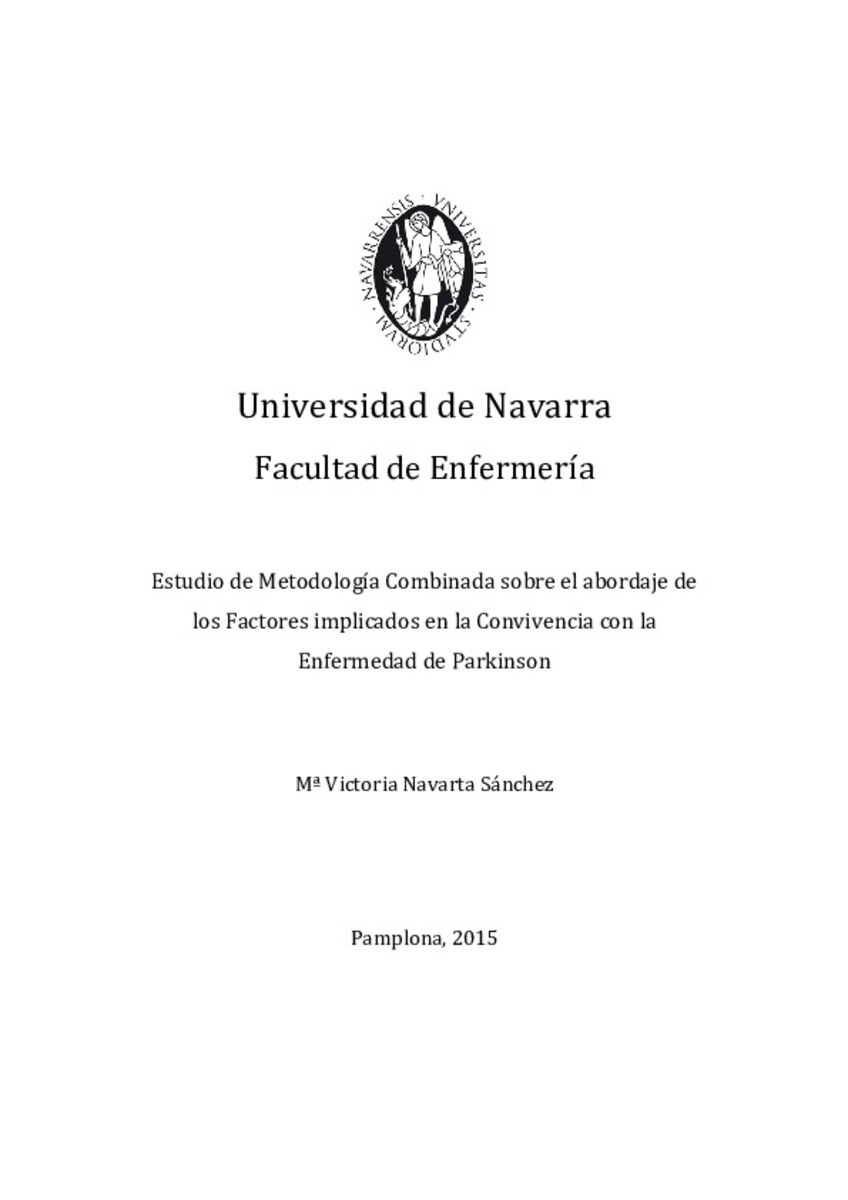Estudio de Metodología continuada sobre el abordaje de los factores implicados en la convivencia con la enfermedad de Parkinson
Keywords:
Calidad de vida
Afrontamiento de la enfermedad
Salud pública
Materias Investigacion::Ciencias de la Salud::Geriatría
Defense Date:
25-Sep-2015
Citation:
NAVARTA SÁNCHEZ, Mª Victoria. “Estudio de Metodología continuada sobre el abordaje de los factores implicados en la convivencia con la enfermedad de Parkinson”. Portillo, M. C. (dir.). Tesis doctoral. Universidad de Navarra, Pamplona, 2015.
Statistics and impact
0 citas en

0 citas en

Items in Dadun are protected by copyright, with all rights reserved, unless otherwise indicated.







